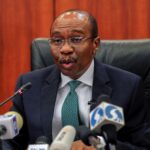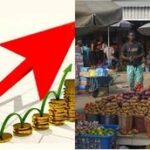Nigeria’s poverty population has risen by 5 million in 2022, the World Bank’s Chief economist, Alex Sienaert, has revealed, blaming rise in inflation rate which has reduced the value of minimum wage in the country.
Prime Business Africa had reported that Nigeria’s official inflation hit 21.47 per cent in November, surpassing the 21.09 per cent reported in October 2022.
Join our WhatsApp ChannelAccording to the World Bank’s chief economist during the Corporation’s launch of the Nigeria Development Update for December 2022 Edition, and the Country Economic Memorandum held in Abuja on Thursday, 23 million more Nigerians could be thrown into poverty.
It was learnt that Nigerians are struggling with high cost of living that has reduced the value of the N30,000 current minimum wage to N19,355. Note that not all states are paying the wage, and some are owing according to a BudgIT report.
Nigeria is currently experiencing its highest inflation in at least 17 years, as the Central Bank of Nigeria (CBN) struggles to curb the rate which has grown in 10 consecutive months in 2022.
Sienaert said macroeconomic stability has steadily deteriorated, and Prime Business Africa understands that the income of citizens and low-income households is at the receiving end.
He explained that soaring inflation increases the poverty rate and prevents growth despite Nigeria having the potential and resources to improve the livelihood of Nigerians.
The World Bank official revealed that “If structural reforms are not implemented, Nigeria’s future looks bleak, per capita income will plateau, Nigerians will not have a full-time job by 2030 and if the employment rate does not improve, 23 million more Nigerians will live in extreme poverty by 2030,” he said.
Multiple exchange rates, inflation, others affecting livelihood
Sienaert stated that multiple exchange rates, protectionist policies and trading restrictions are some of the factors working against the country’s growth potential.
He explained that economic growth and job creation can’t be achieved with the current policy framework, adding that reforms are needed to remove the bottlenecks.
According to Sienaert, removing fuel subsidy, increasing non-oil revenues through taxes, and eliminating multiple exchange rates by adopting single and market reflective exchange rate will improve the country’s economic position.
Also, reducing insecurity, among others are necessary to unlock private investment, which “can generate economic opportunities for Nigeria’s growing population, accelerating structural transformation and promoting the diversification of its economy.”

















Follow Us